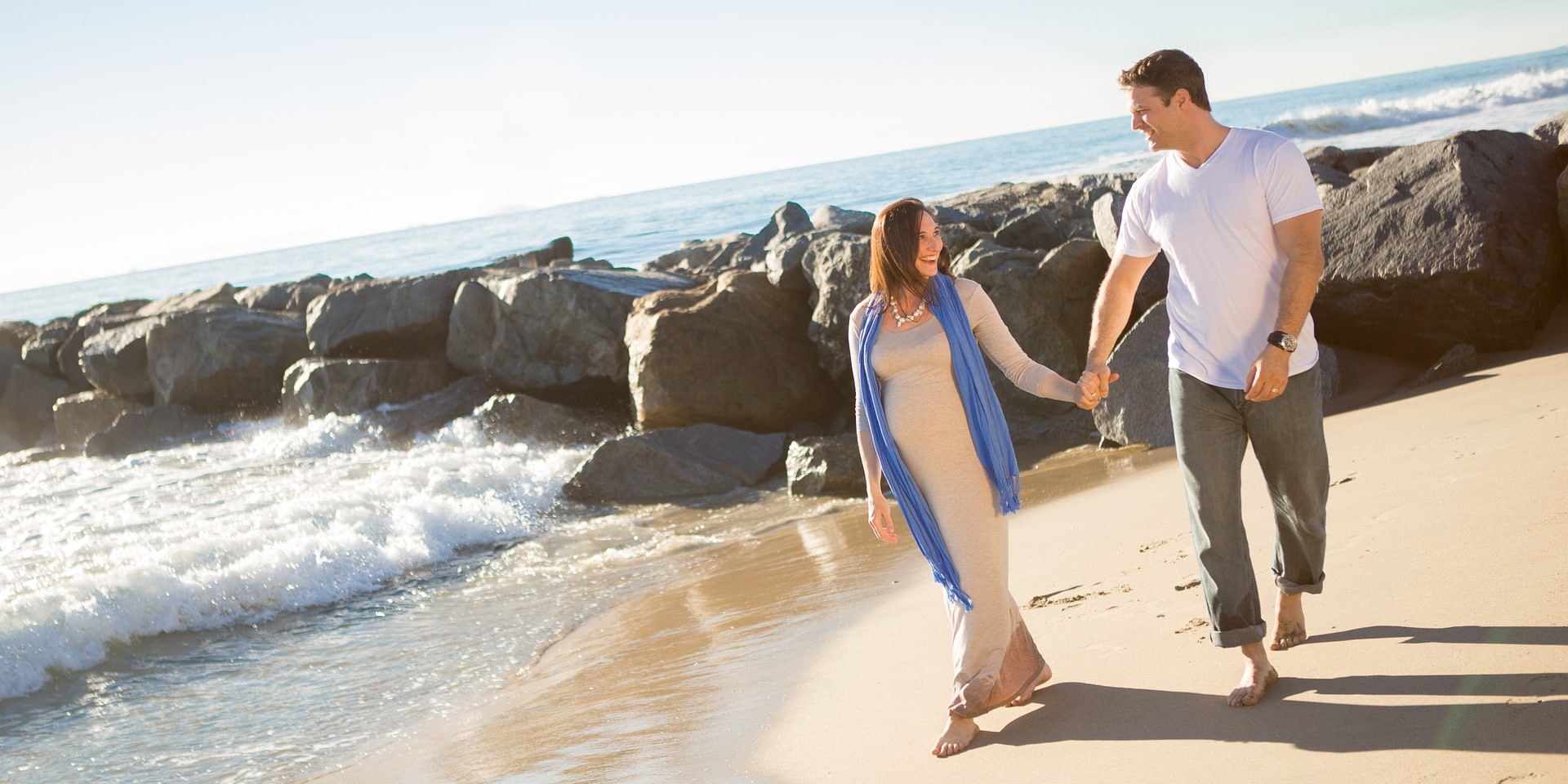Traveling while pregnant can be difficult for some women, especially in the first 12 weeks. Morning sickness and nausea and the stress building up prior to your scheduled travel, and we are talking about mental stress, the fear of the unknown.
But fear not! If you and your baby are healthy, you should be safe to travel up to your 36th week of pregnancy. The most reasonable and right thing to do is to talk to your midwife as they will be able to give you green light for whatever travel you have in mind.
Still, it would not hurt to check for guidelines and suggestions on how to make your travel easier and stress free, so read on:
Best time to travel during pregnancy
According to doctors the best time to travel is between 14 and 28 weeks.
In the first 12 weeks you may suffer with morning sickness, and after 28 weeks is will be more difficult to you to move around especially if you are carrying large bag or suitcase, so traveling could be tiring and uncomfortable.
Just listen to your body, it will tell you when you are ready to go! If you have a certain pregnancy complication, avoid traveling at all costs. The same goes if you are carrying more than one baby, just try and avoid it!
Traveling by car
Be sure to take only short trips, and even if you have to take a longer trip, make frequent stops so you can stretch your legs, and breath fresh air.
Always use the safety belt, but place it underneath your belly and just over your hip bones, and the vertical belt between your chest. The pressure from the seat belt cannot harm your baby, even in a worst case scenario of a car accident, but still it might be uncomfortable to you.
It is very important to always wear your seat belt, even in short drives.
Traveling by plane
If you plan to travel, flying is one of your safest options.
First check the airline company’s policy. Many airlines restrict flying after 36 weeks of pregnancy, some even earlier, and some might even require a medical certificate from your doctor that you are safe to travel.
Wear your seat belt all the time, and for longer flights be sure to get up and stretch a bit. Taking an aisle seat is a good idea if you plan on getting up more frequently. Staying in one place for too long can increase the risk of DVT (deep vein thrombosis causing blood clots in your veins, which can occur during pregnancy). Taking a walk up and down the aisle will help in preventing DVT.
In addition, drink a lot of water to avoid dehydration, especially as you will be sitting in an air conditioned plane.
Cruises and traveling by boat
Same as airlines, some companies that offer sea transport might refuse to allow you onboard.
Many cruises have a doctor and a nurse on board, so this is the safer option, and always check for stops on the way and medicinal facilities there.
Have in mind that while traveling on a large ship you are at risk of getting norovirus. This is a virus that can cause nausea, vomiting, and diarrhea for 1-2 days and can be spread by eating infected food or touching infected surfaces. Even when not pregnant this can be serious, when pregnant it can be life threatening for your baby.
Wash your hands frequently and avoid eating unpacked food, and if you eat veggies and fruit wash them thoroughly with water (bottled if possible).
If possible, avoid sailing while pregnant!
Where to travel
Or even better, where not to travel!
Avoid areas where Zika outbreaks occur and are ongoing. Zika is a virus spread by mosquitoes and can cause serious birth defects. Also avoid areas where malaria is present, a virus also spread by mosquitoes.
For some countries you might need to be vaccinated. Vaccination uses a live bacteria or virus that can be risky during pregnancy. Additionally, some vaccinations involve multiple shots to be effective. However, if you don’t have a choice, be sure to get the required inoculation since not getting vaccinated is far more risky than catching a dangerous virus or bacteria.
If you are planning a trip, consult with your doctor first to see if any vaccinations would be required to visit a certain country. It would probably be best to save such trips for when you’re not expecting.
What to prepare prior traveling
If you are going away for a longer period of time, take a copy of your medical chart and a clearance letter from your O.B. Know your due date and take all the medications and prenatal vitamins and supplements required for the period you’ll be away.
Buy travel insurance with everything covered, and plan a trip that can easily be adjusted on route. Also make sure you’ve checked all the available medical facilities where you’ll be traveling, and check their references!
Although it is advised that you don’t travel close to your due date, in extreme circumstances it may be required. In such a case, find out if local medical facilities require you to book in, or if they accept walk ins should your baby decide to arrive early.
What to pack for the trip
Besides the usual mom things, always carry a lot of water, and prefer bottled water as it is safer during pregnancy. Bring with you prescribed antibiotics from your doctor, just in case. Also take some anti-diarrhea medicine that is safe for pregnant women.
What to do while away
Just like at home, have plenty of rest and always stay hydrated. Swimming and walking while pregnant is recommended, as well as hiking at moderate pace. Follow your pulse, and do not let it get too high.
Scuba diving, water skiing and the usual water sports should be avoided, because of obvious reasons! Same goes for skiing and snowboarding! And don’t stay in the sun for too long as sun exposure can raise your core temperature, which is not good for your baby.
Enjoy yourself
If you follow your body and your doctors instruction, you will have a great time while away.
Just ensure that you keep you and your baby safe, and make sensible decisions about where to go, and what to do.


